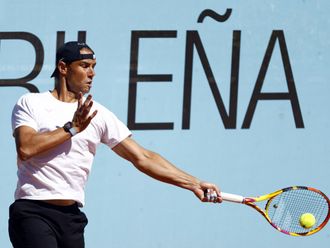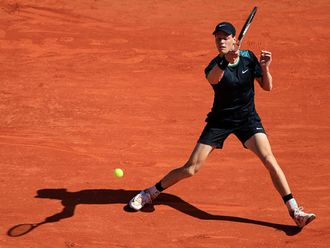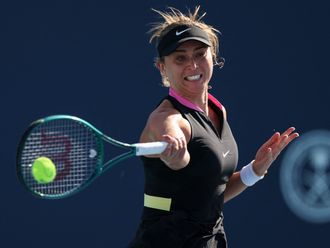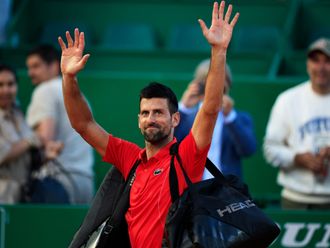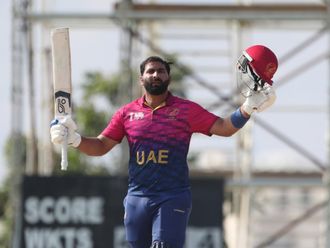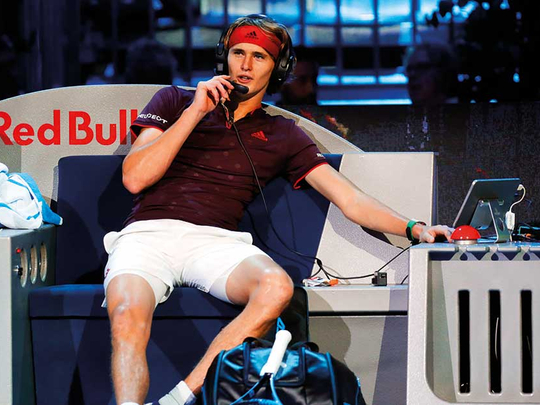
Milan: Tennis line judges might grimace when they hear it, but players reacted positively to them being replaced by computerised calls on the opening day of the Next Gen ATP Finals on Tuesday.
Hawk-Eye review technology has been a long-standing feature of professional tennis, allowing players to challenge tight calls made by the human eye.
But the ATP has taken it a step further this week with all lines at the innovative Milan showpiece for the cream of players aged 21 and under controlled solely by the state-of-the art system originally invented for missile tracking.
An automated voice instantaneously announced “OUT” or “FAULT” in a rather unnerving British accent — the only gripe from Russian 21-year-old Karen Khachanov.
“I think for now live Hawk-Eye is a good thing,” he told reporters after losing to compatriot Daniil Medvedev in the opening match of the eight-man event showcasing a raft of new innovations and branded as “reinventing tennis”.
“Only thing is I would like to hear a different voice. I think it’s better that all umpires record their voices and each match they are on, it’s the voice of the umpire in the chair.”
World No. 65 Medvedev also liked the system.
“It was very fast,” he said. “It doesn’t make mistakes. I really liked it. In every other sport there are innovations, and this thing without line judges makes it more fair, I would say.”
Alexander Zverev, the world No. 3 who pulled out of the inaugural Next Gen Finals to focus on his debut in the ATP Finals in London, joined the experiment with an exhibition match between sessions in Milan on Tuesday.
“I think the shot clock is a good thing, maybe Hawk-Eye calling all the lines, I like that,” the German told reporters.
“But a lot of the other things I’m sure they won’t happen.”
As well as shot clock to enforce the 25-second between points rule, the event features matches played over best-of-five ‘short’ sets to four games not six, with a tiebreak at 3-3.
“It’s more intense,” Canada’s Denis Shapovalov said after losing 1-4, 4-3, 4-3, 4-1 to South Korean Hyeon Chung.
Advantage points have gone, meaning deuce becomes “sudden death” with the server choosing which side to serve, as have service lets, briefly catching out Brazilian umpire Carlos Bernardes who instinctively called one.
“Let cords are different. It’s difficult,” Shapovalov, who was also deceived by one, said. “The last game was the one where I was slow to react and I had to run to it.
“But I think it makes it more entertaining. It’s cool to try new things out.”
Players easily stayed within the 25-second shot clock, but felt the countdown could be introduced on Tour.
“It’s a little bit tougher, because you need to follow the rhythm all the time. You need to check on the scoreboard. But in general, it’s the right thing to do,” Khachanov said.
Not everyone liked the crowd being allowed to talk and move around freely during points — another feature in Milan.
“That was the most challenging thing,” Medvedev said. “If they are walking and talking there is a lot of sound.
“But the rest of the rules? I liked them. It was fun today.”


